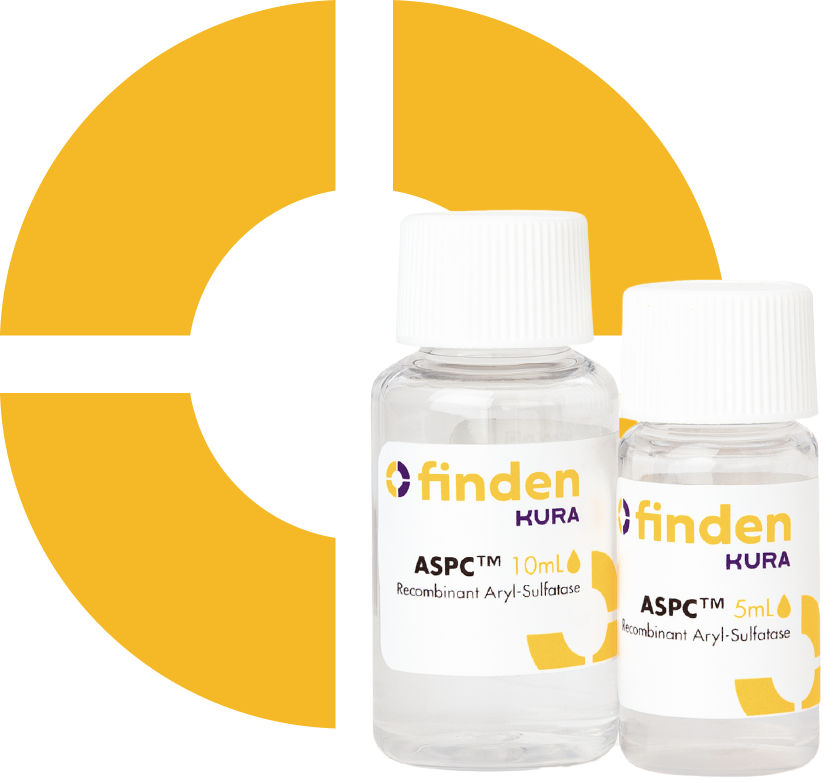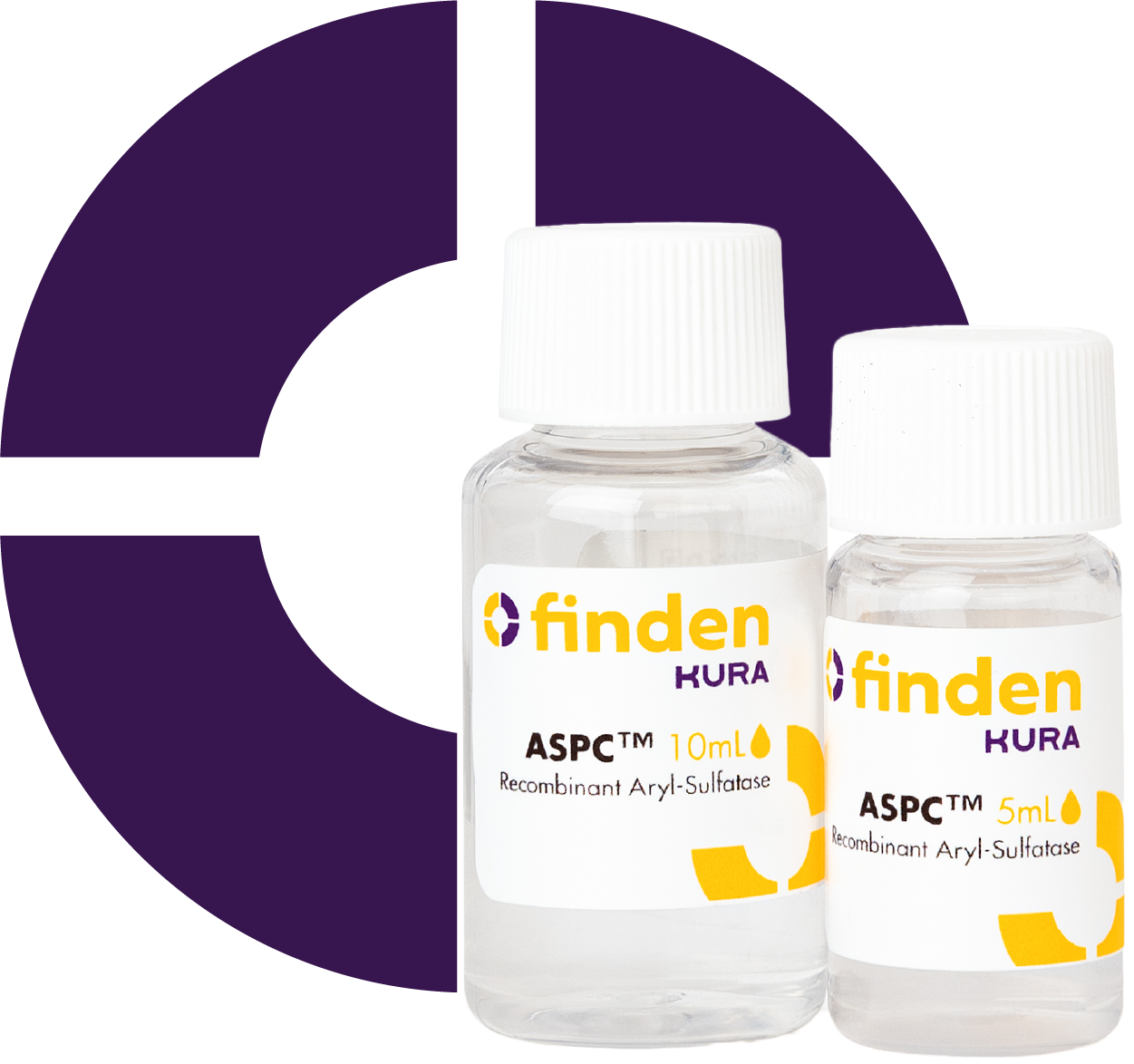
Product Overview
Specifically designed for selective deconjugation of sulfo-conjugates while leaving 𝛃-glucuronide conjugates intact.
AVAILABLE PRESENTATIONS
![]()

- Information
- Specifications
-
Information
ASPC™ is a recombinant arylsulfatase enzyme that efficiently deconjugates a wide range of sulfated moieties. Unlike most commercially available enzymes, which include glucuronidase enzymes, ASPC™ is a pure sulfatase that enables the hydrolysis of sulfates alone, with no other types of conjugations.
Conjugation of xenobiotics represents an important biotransformation reaction in humans and animals. Hydrolysis of sulfo-conjugates is particularly relevant in steroid analysis, given that many steroids are converted into a mix of conjugates.
Because of its purity, ASPC™ avoids both conversions and the generation of interfering peaks typically produced by wild-type enzymes. Unlike wild-type versions, recombinant arylsulfatase can reach pure arylsulfatase activity. It is also significantly more stable, something that is difficult to achieve in wild-type enzymes.
-
Specifications
Product Form: Solution, 10% (v/v) glycerol
Temperature Range: 50 – 55°C
Optimum Temperature: 52°C
pH Range: 6.8 - 7.0
Optimum pH: 6.9
Sulfatase activity: ≥ 250,000 Units/ml
Storage/Stability: Store at 2 – 8°C for up to 12
months.Activity Unit definition: One sulfatase unit
will hydrolyze 1.0 nmole of p-nitrocatechol
sulfate at pH 7.0 and 45°C per hour.CAS No. 9001-45-0

Resources
Technical Data Sheets
Technical DataSheet ASPC
Publications & Posters
- Immobilized Enzymes on Magnetic Beads for Separate Mass Spectrometric Investigation of Human Phase II Metabolite Classes
- Advanced Metabolomics Analysis Through Chemical Biology Tools for the Selective Investigation of Gut Microbiota-Derived Metabolites
- Comparison of two aryl sulfatases for targeted mass spectrometric analysis of microbiota-derived metabolites
- Comparative dietary sulfated metabolome analysis reveals unknown metabolic interactions of the gut microbiome and the human host
- Development and characterization of an enzyme formulation for sulfatase and glucuronidase hydrolysis in a single-step
- Unique Chemical biology tools for advanced metabolomics analysis - exploring gut microbiota metabolism by Daniel Globisch
- Enzymatic and mass spectrometric methodology for the selective investigation of gut microbiota-derived metabolites by Ioanna Tsiara
- Characterizing the Sulfated and Glucuronidated (Poly)phenol Metabolome for Dietary Biomarker Discovery

